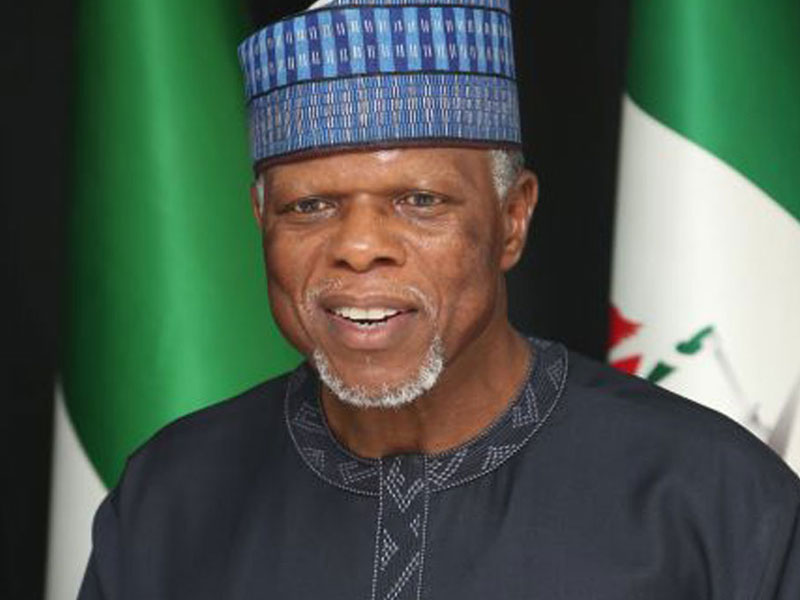Vehicle inspection by Customs should be devoid of extortion
As the Nigeria Customs Service intensifies its inspection of vehicles plying the highways, Nigerians have been complaining about the exercise which they say is being used as an avenue for extortion by some men of the customs. We understand that the customs service has statutory obligations to conduct checks on vehicles anywhere in the country, […]

Comptroller-General of Customs (CGC), retired Col. Hameed Ali
As the Nigeria Customs Service intensifies its inspection of vehicles plying the highways, Nigerians have been complaining about the exercise which they say is being used as an avenue for extortion by some men of the customs.
We understand that the customs service has statutory obligations to conduct checks on vehicles anywhere in the country, whether in the ports of entry or anywhere beyond them. We are concerned, however, about reports of extortion by the men of the service, and the untold inconvenience and hardship motorists are roundly subjected to on the highways.
Vehicle inspection on highways by the customs had long been a routine exercise to curtail the menace of vehicle smuggling in the country but was suspended during the closure of the land borders by the federal government and the height of the COVID-19 pandemic. With the reopening of the land borders and the easing of the pandemic, the inspections have now been reintroduced to check the papers of vehicles plying the highways. A cross-section of motorists who spoke to this newspaper in a recent report said they were often intimidated and harassed by the customs men who hide under the excuse of checking smuggling and vehicle duty, to perpetrate illegalities.
Nigerians who spoke in the report recounted paying as high as N150,000 to customs operatives patrolling the highways, without any receipt or payment evidence, after being accused of possessing fake documents. The report identified a number of places that have become notorious for such operations like the ever-busy Naval Base area of the Abuja-Lokoja highway in Kogi State, the Ibilor area in Edo State and along the Okene-Edo-Ekiti route, which connects the North to the South. The Jos-Abuja highway, specifically around the Riyom-Kuru and Forest axis is also another black spot identified by motorists.
We note that the customs has generally improved the process of documentation for new vehicles with simplified payment procedures. But while we commend these efforts, we must also state that a lot remains to be done. The illegal importation of vehicles into the country, which still happens, cannot occur without the knowledge and possible connivance with customs officials.
The incidence of extortion that motorists complain about constitutes a dent on the image of the customs. Many have come away with the impression that the emphasis of the exercise is more about extorting money from motorists than the customs doing the job for which the extant laws and Nigerians expect them to do. This must be corrected by the customs authorities without further delay. Most motorists lament that the fake documents the customs accuse them of possessing were indeed issued by customs officials. This, therefore, means that the customs service must tighten its activities to ensure that all documents issued are genuine. It should also institute a thorough house cleaning of procedures and reorientation of its men. It must improve its mechanism for manning the land borders to prevent not just the illegal importation of vehicles but all other contraband items.
Furthermore, the Nigeria Customs Service, like all other military and para-military institutions in the country, remain stuck to the authoritarian mentality and unfriendly attitudes of our military past when dealing with Nigerian citizens. This must be jettisoned. The NCS is not just a law enforcement body, but also a revenue generating entity. Those revenues come from Nigerians.
There is need, therefore, for a cultural reorientation exercise to make the men of the customs more professional in carrying out their duties and to shun acts that deviate from the core mandate of the service. They should also be charged to be polite while being firm in carrying out their operations on the highways bearing in mind that the NCS is primarily a service-oriented public institution. This is why it is called the Nigeria Customs Service, if this bears repeating.
In addition, the service should sensitize Nigerians on how to identify fake vehicle documents. That way, cases of fake vehicle documents will reduce. However, Nigerians who utilize the services of the customs in various ways must also do their part in making the process seamless and free of fraud. Citizens must cooperate fully with the officials of the service at all times, and do so in a respectful manner. Those who feel aggrieved should not shy away from making their complaints to the appropriate authorities. Everything possible should be done to ensure effective service delivery by the customs operatives.
